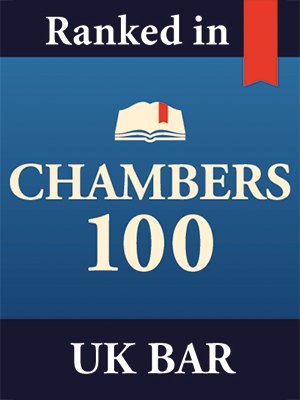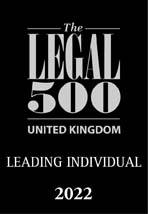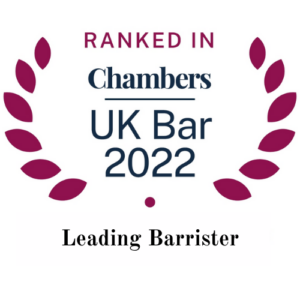This news just in: GPT-4 wins chatbot lawyer contest!
Perhaps it’s time for barristers to hang up their wigs and let artificial intelligence (AI) take over?
But hold on; GPT-4 may have beaten all other chatbots – it scored 75% in the bar exams and out-performed all other artificial intelligence models at legal reasoning – but read the small print, and you’ll see it’s still no match for real barristers according to ‘New Scientist’.
Let’s face it, if you’re in the middle of a complex dispute with another shareholder, partner or director, would you rather speak to a chatbot or an experienced and specialist barrister?
Having spent over thirty years working with clients that are embroiled in often complex and heated shareholder disputes, I can say with absolute confidence that artificial intelligence is no match for the understanding, sensitivity, knowledge and experience needed to help navigate, mediate and resolve disputes of this nature successfully.
Here are just a few of the reasons why talking to a specialist barrister with decades of experience in this field will give you the best possible chance of resolving your dispute successfully and economically:
Shareholder disputes are complex
Shareholder disputes are often particularly complex. There are often multiple parties involved, years of history to consider and changing responsibilities, roles and relationships that need to be carefully understood. The terms and effects of relevant shareholders’ agreements and articles of association need to be understood, and where there is no shareholders’ agreement in place, things can be even more complicated. Without experienced specialist expertise, shareholders are far less likely to be able to resolve their dispute amicably and walk away with a result that they can feel satisfied with.
Shareholder disputes are often sensitive.
When business relationships turn sour, there are generally a lot of human emotions at play. It is not unusual for shareholders to seek legal advice fuelled by feelings of anger, hurt, betrayal and animosity. Dealing with a real human is invaluable at this stage, particularly one that carries decades of experience in this tricky field; barristers are able to provide reassurance, level-headedness and clarity to clients in a way that artificial intelligence simply can’t. The client/barrister relationship is key.
Effective resolution of shareholder disputes can take time. It’s a process. You are likely to find that you need your barrister’s support during that process, and that support will only be effective if it is built on solid foundations. You will need to establish a relationship with your barrister based on trust, respect and understanding. A chatbot simply can’t provide that support. Nothing beats expert advice.
Taking specialist and experienced legal advice at as early a stage as possible provides the best route to resolution in as seamless and stress-free way as is possible. Chatbots are simply incomparable to specialist barristers with years of experience in dealing with complex situations such as yours. An experienced, specialist barrister should be able to identify the best steps to take towards resolution. From pre-litigation to mediation and negotiation and right through to court proceedings, a specialist barrister will be able to advise, guide, represent and support you.
If you find yourself in the midst of a shareholder dispute and would like to talk to a specialist barrister with over thirty years of experience, please do get in touch by calling me on 07718 883094 or emailing andrew.marsden@commercialchambers.org. A thirty-minute initial conversation won’t cost you anything -I’d be very happy to offer you some advice and guidance.



